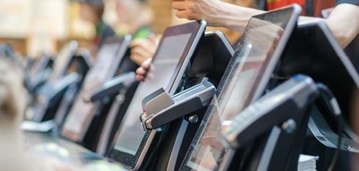Pittsburgh’s Dive Bar & Grille Adapts to Rapid Change in the Restaurant Industry

Before opening his own restaurant, Clint Kuskie had worked in just about every position in the industry you can imagine. From bussing tables and bar backing to working in the kitchen and eventually running training programs and serving as a manager in the corporate restaurant world, he had seen it all.
So when he opened Pittsburgh’s Dive Bar & Grille ten years ago with his partner, Gordon Judge, who boasted similar experience, they were starting their foray into small business ownership on solid footing.
Over the ensuing decade, the restaurant developed a reputation for great food, destination-worthy cocktails, a welcoming, upscale atmosphere and, perhaps most importantly, top-notch customer service. Their initial success allowed them to grow their business, expanding their footprint to five locations in the Pittsburgh area.
When the fifth restaurant opened early this spring, Dive Bar & Grille was firing on all cylinders: the kitchens were busy, the tables were full.
Then, just a couple weeks after their fifth restaurant opened in Indiana Township, the full effects of the COVID-19 pandemic began to be felt across the U.S. Almost overnight, business as usual ceased for small businesses of all stripes. Bars and restaurants were among the hardest hit.
Since then, Dive Bar & Grille has been navigating a quick succession of changes in state regulations and guidance, testing out new business models, keeping customers and employees safe, and holding on to as many staff members as possible. At nearly every stage of the process, technology has played a key role.
Creating a hybrid ordering model
When the pandemic began, the five restaurants were limited to take-out orders only. Kuskie said they had always accommodated take out, but it was a small part of their business, and a host was traditionally able to handle the volume of orders that came in over the phone. During the pandemic, that changed.
“Our phone was just getting hammered. We couldn't keep up with the volume of calls,” says Kuskie. “We’d get one phone call, then another, and then a third. We never had an elaborate phone system because we never needed it. Now, people were getting a busy signal.”
Dive Bar & Grille was able to quickly stand up an online ordering platform, which solved the problem almost immediately. Kuskie estimates that 75% of the order volume that was coming in over the phone shifted to online ordering, making the phone lines available for those who still preferred to call in and place orders, while further streamlining the ordering process for the vast majority of takeout orders.
The shift to online ordering also allowed the restaurants to handle peak hours better and allocate resources effectively. Through online ordering, as well as third-party food delivery apps, managers have visibility into demand and can even set limits on how many orders are taken at specific times, so the kitchen won’t get flooded with orders all at once.
Expanding outdoor dining and going digital
Eventually the full ban of on-site dining was lifted and restaurants in Pennsylvania were able to host guests at limited capacity. However, as the impact of the virus continued to evolve, so did the restrictions, shifting between 25% and 50% for indoor and outdoor dining.
To accommodate for the restrictions, Kuskie says Dive Bar & Grille undertook some key steps. First, they expanded their outdoor seating areas, where possible, to not only increase overall capacity, but also ensure they could set up tables in as safe a manner as possible. At the Indiana Township location, sand volleyball courts outside the restaurant were transformed into a large, welcoming seating area with brightly colored picnic tables
In addition to making physical changes to the space to accommodate safety requirements, the restaurants also made the ordering process touchless. QR codes at the host stand and at every table allow patrons to instantly pull up the menu on their phone. Kuskie says he expects digital menus to remain in place after the pandemic, too — physical menus come at a cost, and going fully digital allows the team to change menus on the fly, keeping offerings fresh.
Extending connectivity to create ambiance and enable staff
Kuskie says that fast and reliable internet from Comcast Business is incredibly important to everyday operations. They use a streaming music service that runs over WiFi and allows managers to set the music to match the atmosphere throughout the day, improving guest experience. Staff members also use tablets to conduct inventory and replace supplies when needed.
With the expanded outdoor seating, Dive Bar & Grille extended its wired Internet connection to the outdoor service area so they could bring music to patrons eating outdoors, send tickets to the kitchen from an outside POS station, and process credit card transactions. In the future, Kuskie hopes to expand WiFi outside to allow guests to access the network anywhere on the property, and outfit servers with tablets to directly enter orders tableside.
While Dive Bar & Grille isn’t a sports bar by definition, Kuskie says they use their Comcast Business TV service to show games, and hopes to continue the practice as sports get going again. The volleyball courts at the Indiana Township location would be a perfect spot for a large projector, so Kuskie says they’re exploring options to broadcast Steelers games when they’re back on, giving fans a safe and spread-out place to catch the game and grab a bite.
Forging a path forward
By leaning on technology and adapting processes, Kuskie said that the five restaurants have so far been able to keep running despite the unprecedented challenges now faced by small businesses. By ensuring that customers and staff are safe and that the ordering process is digitally driven and smooth, Dive Bar & Grille is able to focus on what matters most: good food and satisfied customers.
Comcast Business is dedicated to enabling businesses of all sizes to adapt to changing circumstances through fast, reliable, and secure technology. Learn more.
Our customer Dive Bar & Grille leans on tech to adapt their operations and keep business moving.
Locked Content
Click on the button below to get access
Unlock NowOr sign in to access all content on Comcast Business Community
Learn how Comcast Business can help
keep you ready for what's next.










